California has long prided itself on being exceptionally friendly to the LGBTQ+ community. From Pride events to flying the rainbow flag from all municipal buildings during the month of June, the state does everything it can to show its support.
However, one man, a Christian Captain of the Los Angeles County fire department is suing the Golden State for forcing him to hang a Pride flag on the firehouse this June. He claims it’s against his Constitutional right to religious freedom.

June is known as Pride month in support of the LGBTQ+ community, as it commemorates the gay liberation protests known as the Stonewall Riots in June of 1969. In 2019, California’s Democratic Governor, Gavin Newsom, decided it was time to celebrate with the community and hung the rainbow flag, signifying LGBTQ+ Pride, at the State Capitol building.
That was the first time that a Pride flag had been flown at a government building. But now, just five years later, several other local governments have decided to do the same.
Los Angeles County Announced Pride Flags to Be Raised at All Municipal Buildings in June
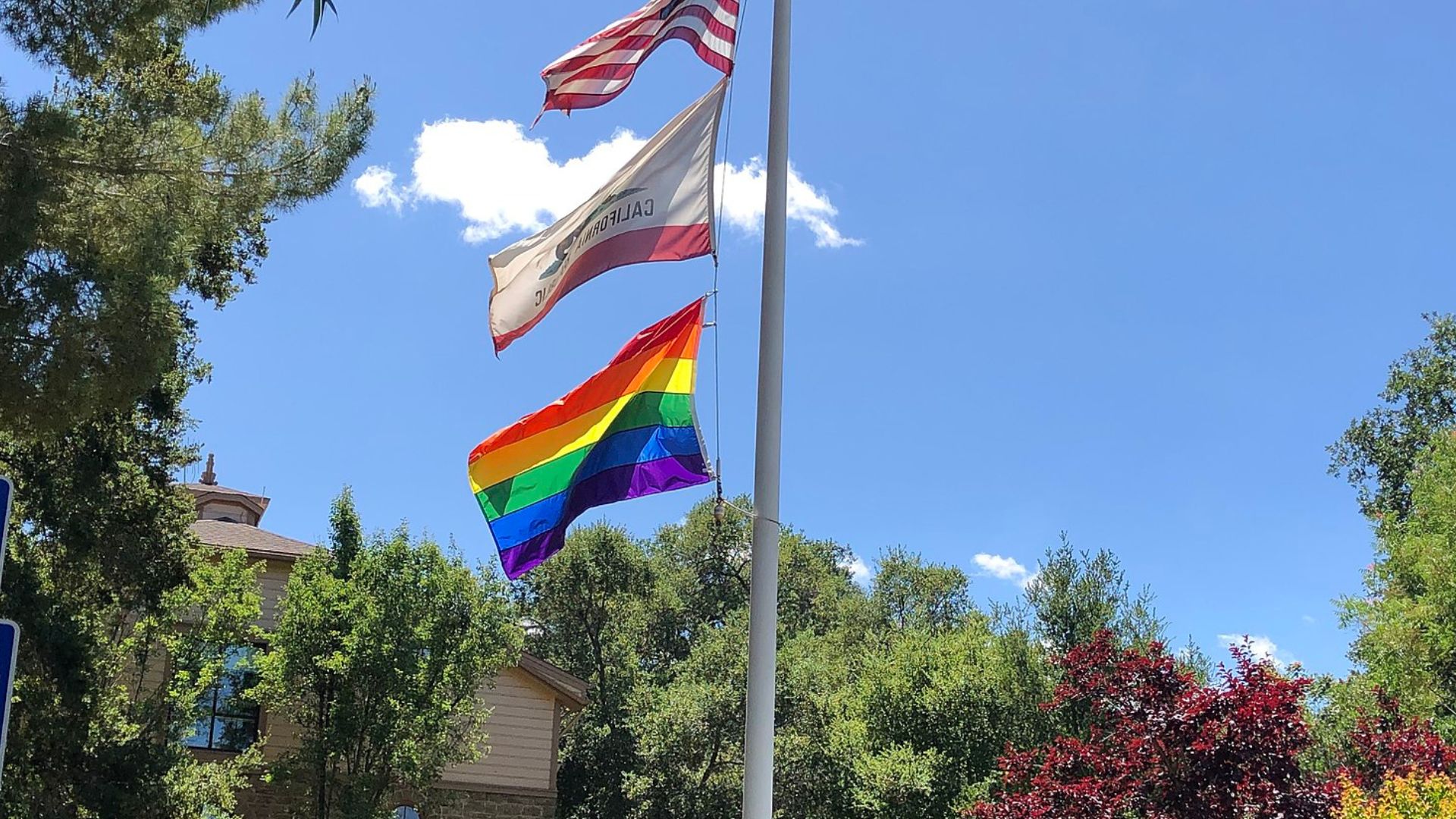
In fact, in May 2023, Los Angeles Mayor Karen Bass announced that LGBTQ+ Pride flags would fly from all LA County government buildings this June in solidarity with the community.
Mayor Bass announced, “I’m proud to have signed this historic motion to fly the Pride Flag over City Hall. Our message to the rest of the country and to the world is clear — now more than ever, we must stand together.”
Not Everyone Is as Thrilled With the Ordinance

Of course, members of the LGBTQ+ community and their millions of supporters were thrilled by the announcement, knowing that their government accepts and supports them. However, many other Americans were less than pleased.
Even in today’s modern world, there are still many who don’t approve of the LGBTQ+ community, which includes those who are gay, bisexual, lesbian, transgender, and queer. And these naysayers argue that the government should not be so publicly supporting the community.
A Captain of the LA Fire Department Has Spoken Out Against the Mayor’s Decision

One man in particular, Captain Jeffery Little of the Los Angeles County Fire Department, is so displeased with the decision to fly Pride flags from city buildings that he is actually suing the state of California.
Captain Little claims that by forcing him to fly the LGBTQ+ flag at his fire station in LA, the government is unequivocally revoking his Constitutional right to religious freedom.
Pride Flags Apparently Are Against the Captain’s Religious Beliefs

After LA supervisors and the mayor decided to fly the Pride flag at all municipal buildings during the month of June in 2023, Captain Little immediately applied to be transferred to Dockweiler, where Pride flags were not required.
Captain Little explained that he considers himself a “devout Evangelical Christian who adheres to traditional Christian beliefs” and, therefore, does not believe in same-sex relationships. Consequently, he argued that he deserved a religious accommodation.
What Is an Religious Accommodation?
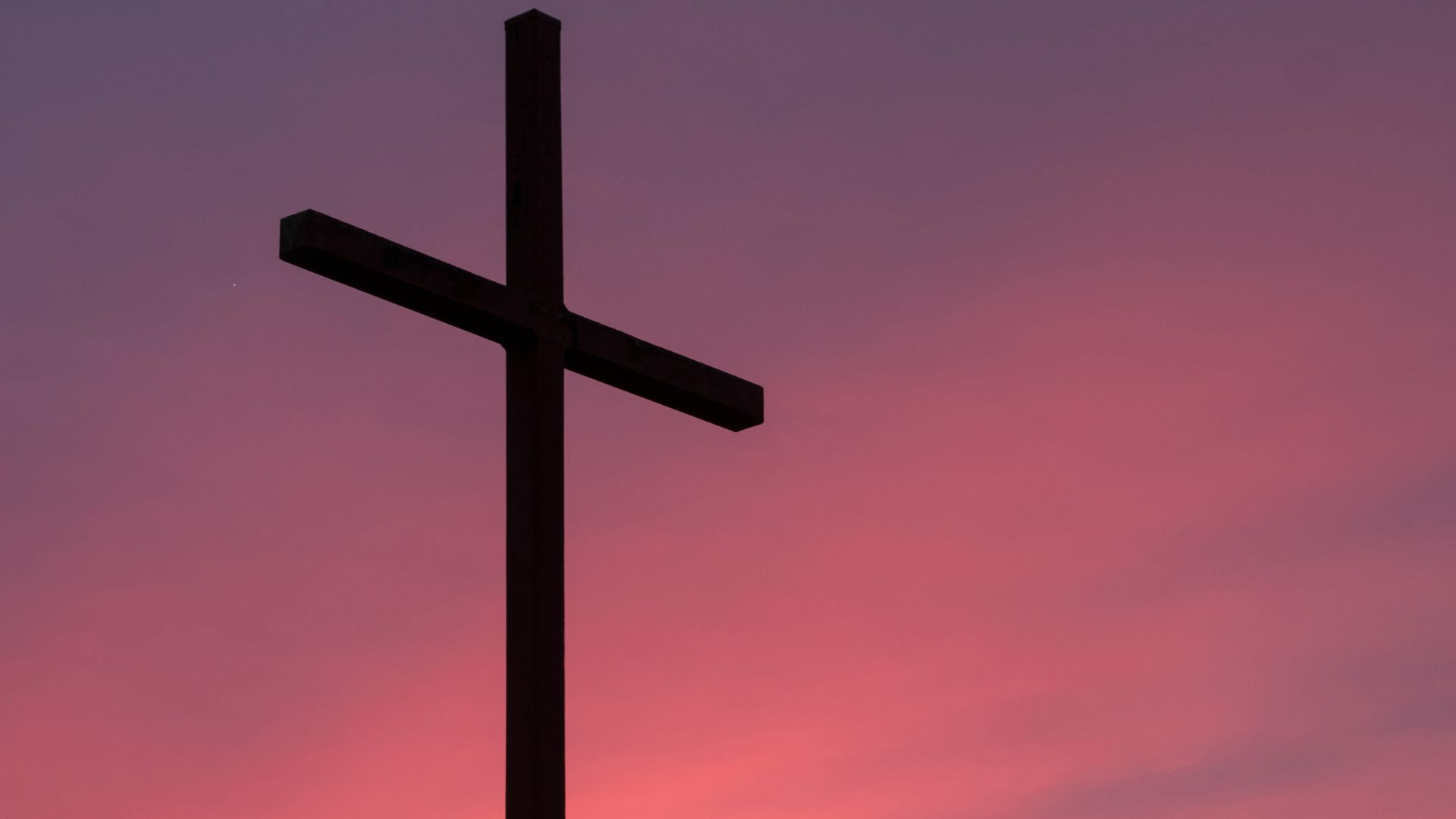
According to the US Department of Labor, “A religious accommodation is any adjustment to the work environment that will allow an employee or applicant to practice his or her religion.”
Therefore, legally, Captain Little was completely within his rights to transfer in order to avoid hanging the Pride flag at his fire station.
The Fire Department in Dockweiler Did Not Abide by Captain Little’s Wishes
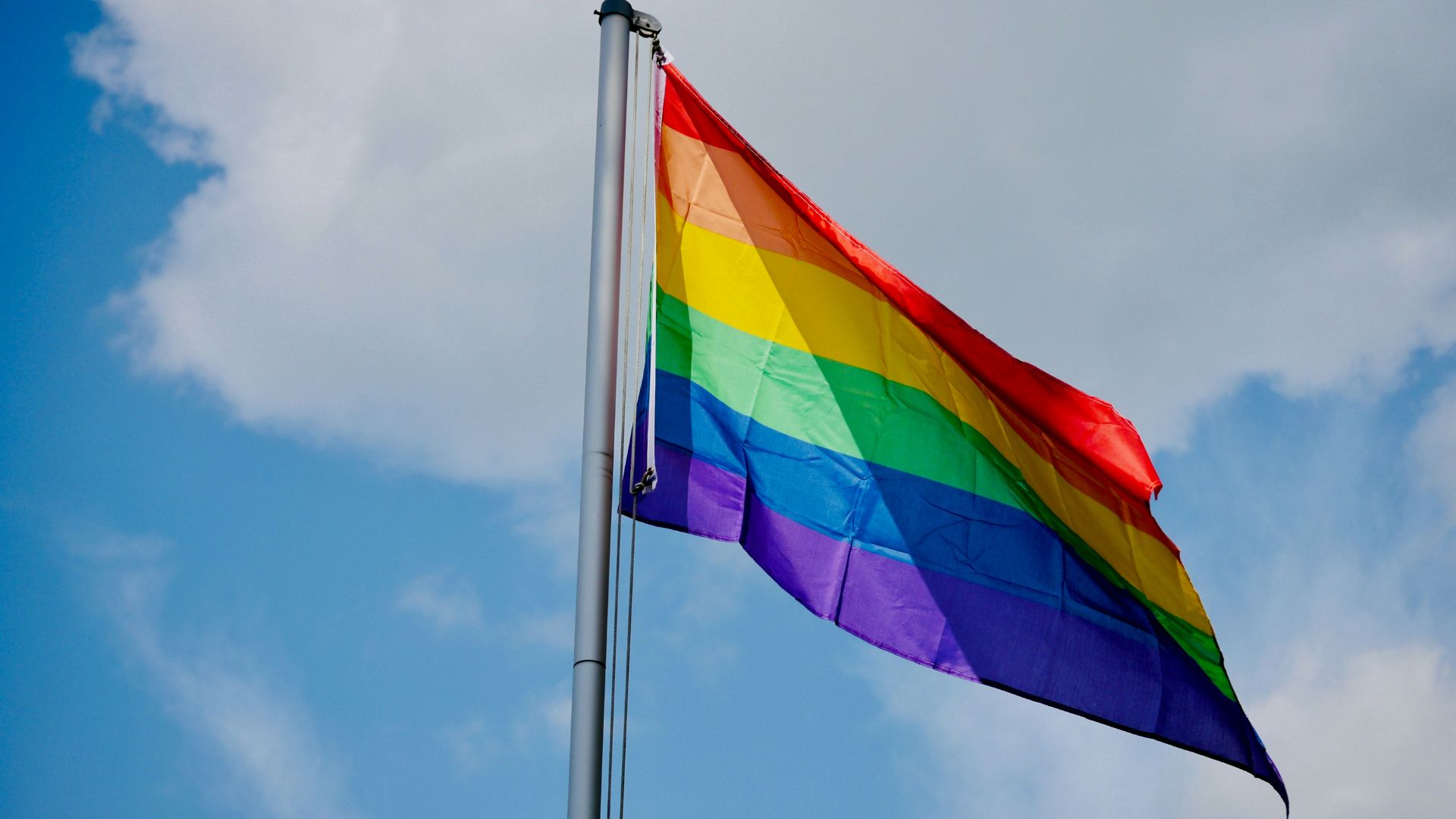
However, things did not go as Captain Little had hoped at the Dockweiler fire station. In his lawsuit, the Captain claims that upon his arrival at Dockweiler, he learned that the fire department had already ordered LGBTQ+ flags to fly at the station.
Captain Little said that he himself took down the flags somewhere between 11:30 AM and 2:30 PM the very day they were added to the flag poles. But that wasn’t the end of the drama.
LA Captain Claims His Religious Freedoms Are Being Revoked
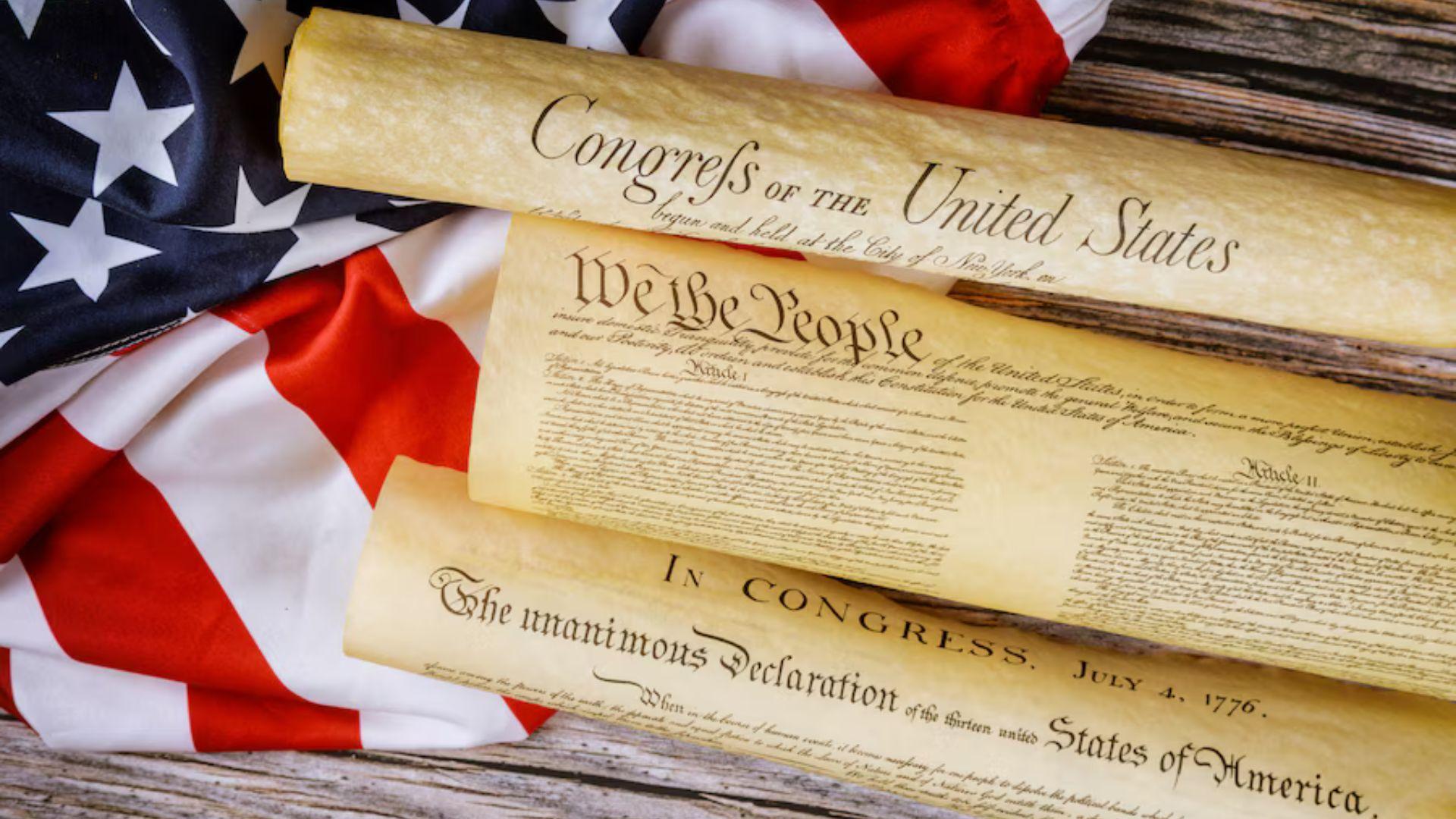
The Captain explained in his lawsuit that by 2:45 PM he had been told his religious accommodation had been revoked, and that by law, he had to raise the Pride flag in front of the fire station.
Captain Little claims that when he refused, he was removed by the department from his role in the background investigation unit, therefore alleging that the Dockweiler department illegally retaliated against him for expressing his religious beliefs.
The Captain’s Lawsuit Argues He Should Not Have to Fly the Pride Flag
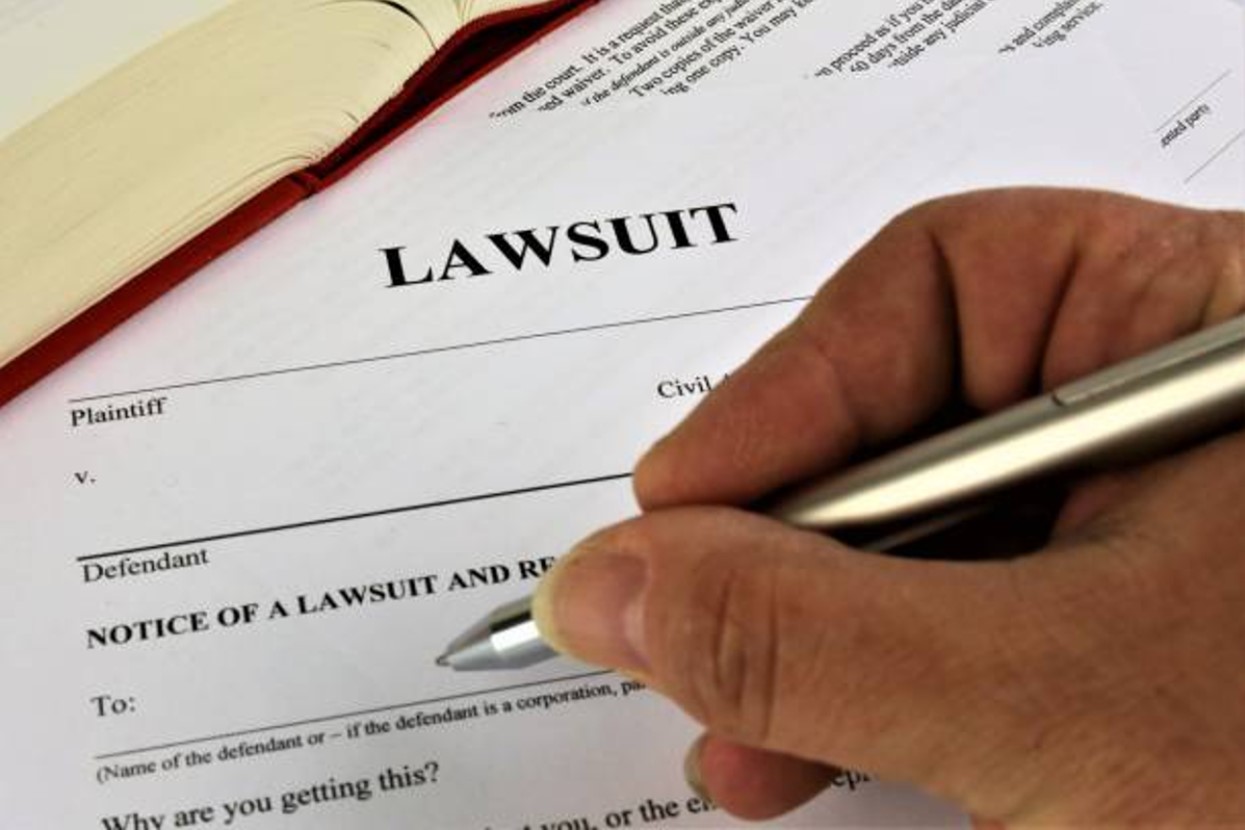
The lawsuit against LA County and the state of California reads, “While Captain Little understands that the government can speak its own messages, and thus may promote Pride Month, he believes that he cannot personally do so by raising the Progress Pride Flag.”
It continues to say that flying the flag is “in direct conflict with Captain Little’s bona fide and sincerely held religious beliefs on the same subjects.”
Captain Little Says the Fire Department Will Not Negotiate

The lawsuit also states, “The Fire Department has provided no reasonable accommodation options for Plaintiff Little and confirmed that he will be subject to discipline and eventual termination for failure to raise the Progress Pride Flag. The Fire Department would not even negotiate on the issue.”
And in a press release, his lawyer, Paul Jonna, explained, “In our great country, Americans can’t even be forced to salute the American flag as a condition of government employment. Yet, in this case, the L.A. County Fire Department seeks to force Captain Little to personally raise the Progress Pride Flag in violation of his sincere and deeply held religious beliefs—or face termination.”
Two of the Most Prominent Debates in the United States
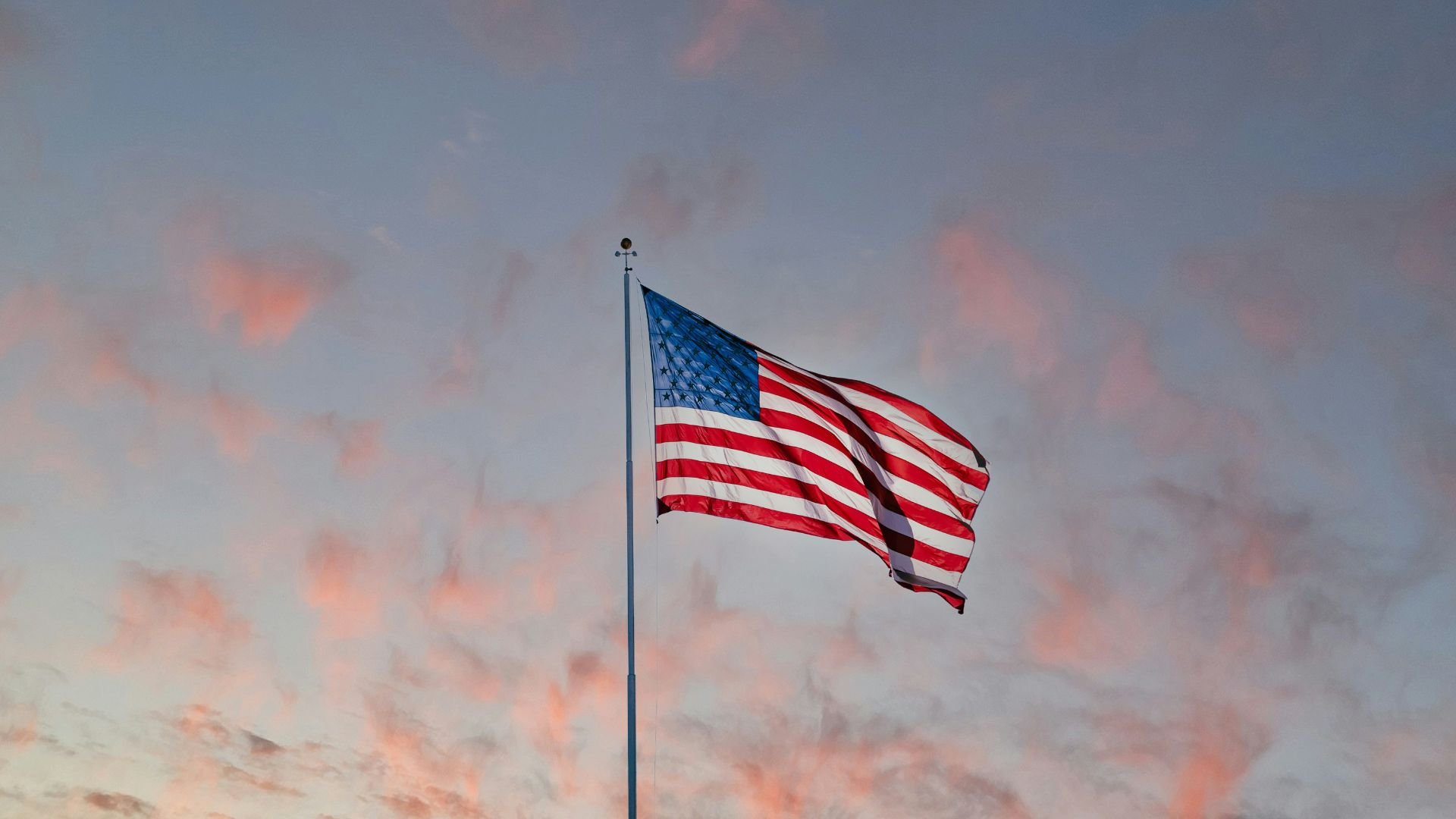
The story of Captain Little and his refusal to fly the Pride flag is about more than just LGBTQ+ rights and support. It also sheds light on two important and controversial conversations.
The first concerns an American’s right to religious freedoms, and the second concerns the government’s right to an opinion. Both have been debated for decades, but now it seems they are coming to a head.
Understanding Religious Freedoms in America
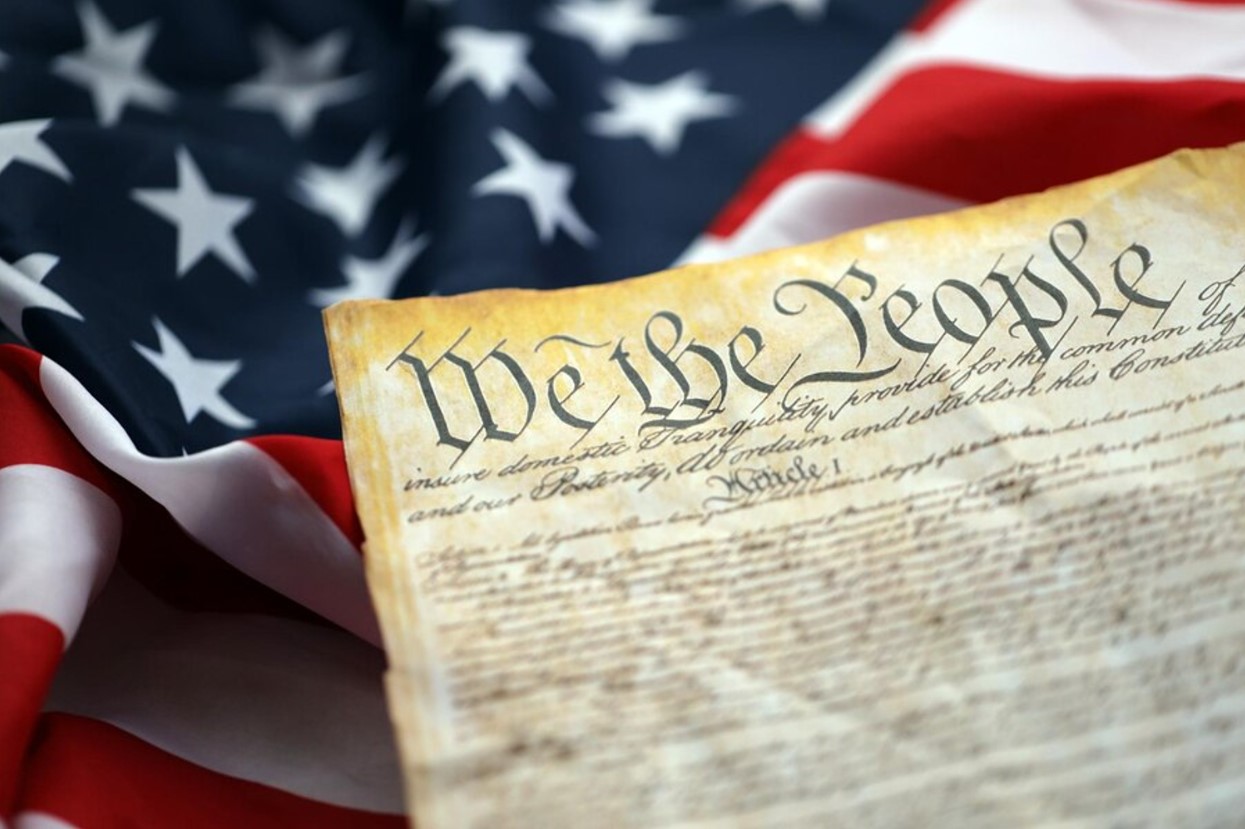
The First Amendment of the US Constitution reads, “Congress shall make no law respecting an establishment of religion, or prohibiting the free exercise thereof.”
In other words, neither the American government nor any of its elected leaders can pass laws that disrespect a citizen’s personal right to practice the religion of their choosing.
All Americans Have the Right to Practice Their Own Religion
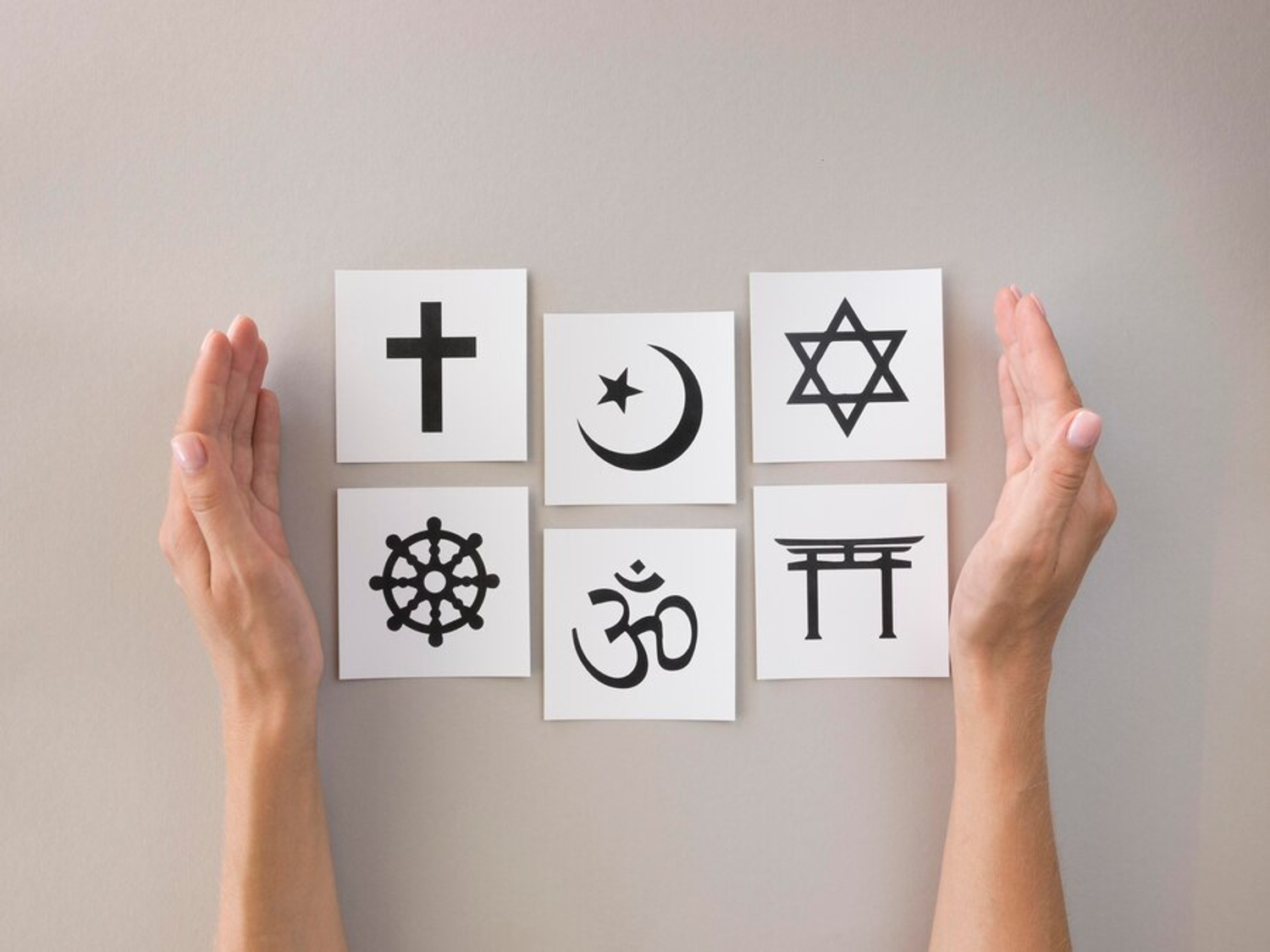
Americans have full and unfailing religious liberties to live, speak, and act according to their beliefs both privately and publicly; it is considered a human right to all.
However, while this is considered a fact in the United States, it’s not exactly what happens in practice. There is absolutely religious prejudice in the US, specifically against those following the Islamic, Jewish, Satanic, or even atheist faiths.
Is the United States a Religious Nation?

The second debate, which closely relates to the first one, is whether or not the United States has a nationwide religion.
Technically, because every American has the right to follow their own religious practices and beliefs, whatever they may be, the US itself should not identify as any one religion. However, it has become very clear that the US government and many of its citizens respect Christianity above all other belief systems.
63% of Americans Identify as Christian

More than 63% of Americans identify as Christian, and 88% of Congress members follow the Christian faith.
The county’s pledge of allegiance, national anthem, and currencies, all mention the Christian God. So the question remains: Is the US a Christian nation, even though it’s supposed to be nonreligious according to the Constitution?
Is America a Christian Nation?
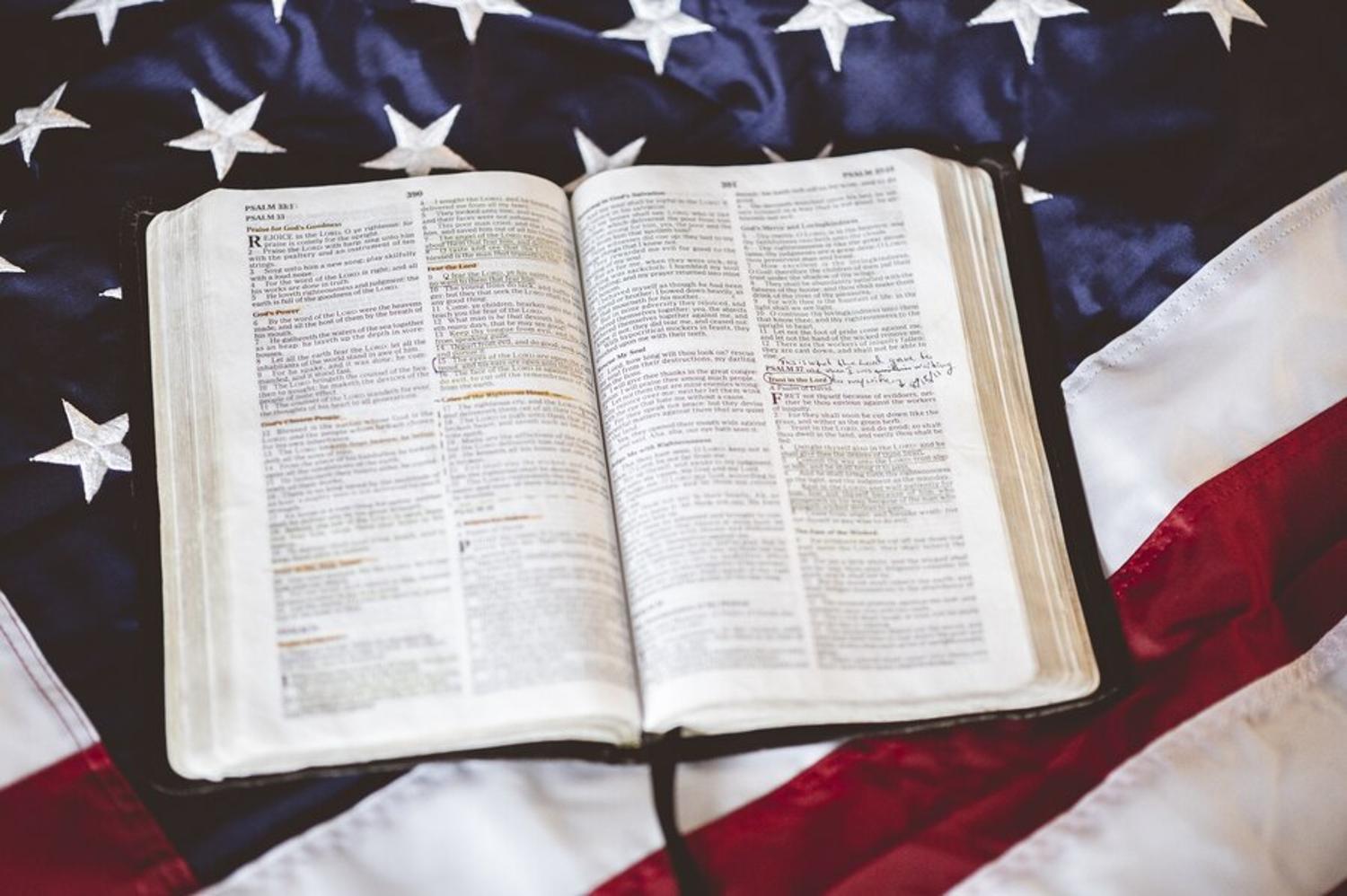
On paper, the Untied States of America is not a Christian nation. However, many argue that in reality, it almost certainly is.
Currently, one-third of Americans agree that the US is a Christian nation and more than 40% argue that it should be. Even though people’s personal opinions cannot change the Constitution, it can affect who they vote into office.
Government Leaders Have Become More Vocal About Their Religious Affiliations
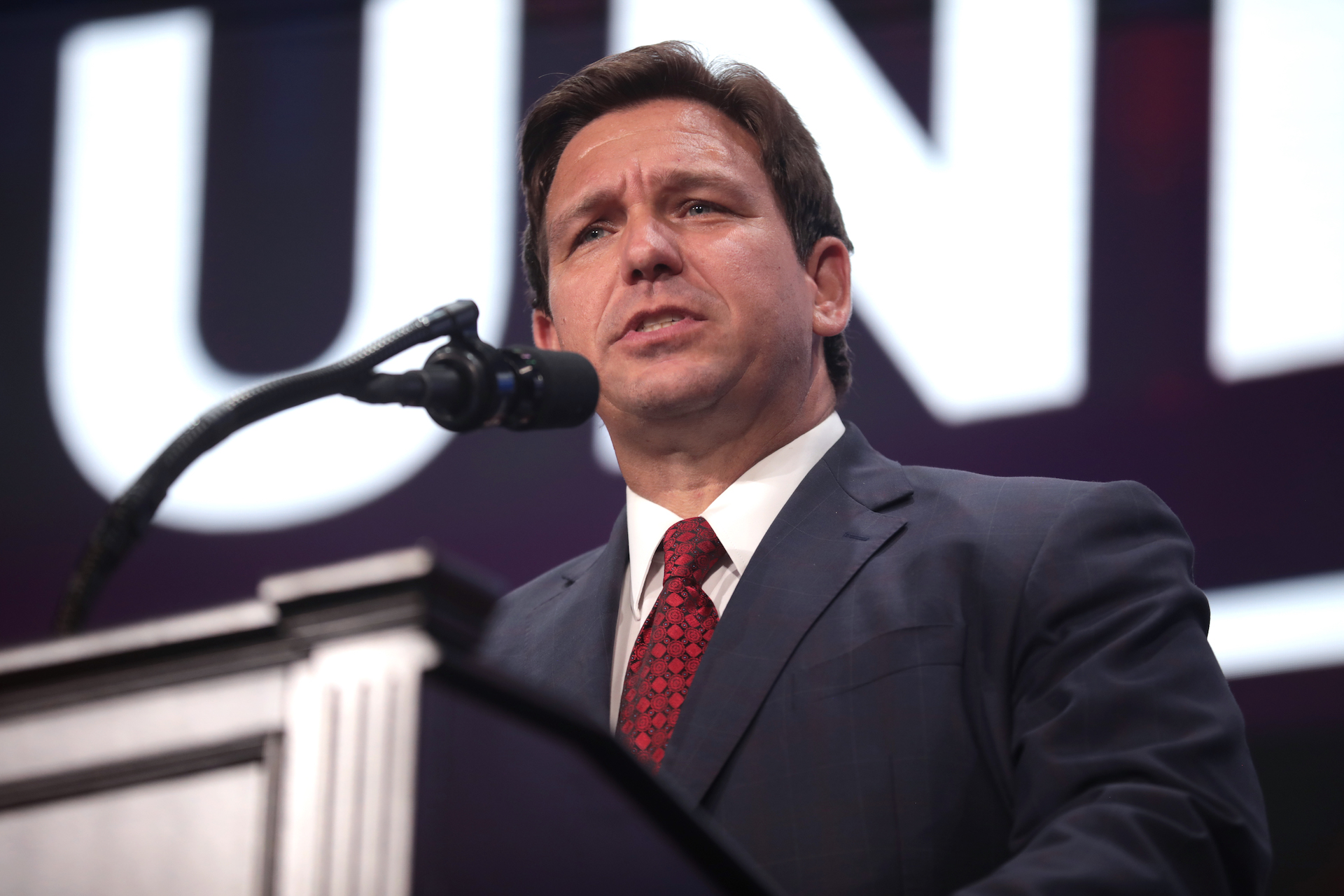
In response to the fact that 63% of Americans believe in Christianity and 40% agree that the nation should follow Christian values, government officials have become increasingly vocal about their own Christian faith.
The famously controversial Governor of Florida, Ron DeSantis, has always boasted about his Christianity, and even quoted a Bible verse during one of his campaign speeches. And many argue that his belief system has unquestionably affected his decisions as leader of the Sunshine State.
Former President Trump Has Repeatedly Used God in His Campaigns

The former president and candidate for the 2024 presidential election, Donald Trump, is another perfect example of a government employee using Christian values in both campaigns and decision making.
In fact, Trump went as far as to say that if he is elected again in 2024, he will use his four years in the White House to defend Christianity as he is a self-proclaimed “very proud Christian.”
Millions of Americans Will Vote Based on Religious Preferences
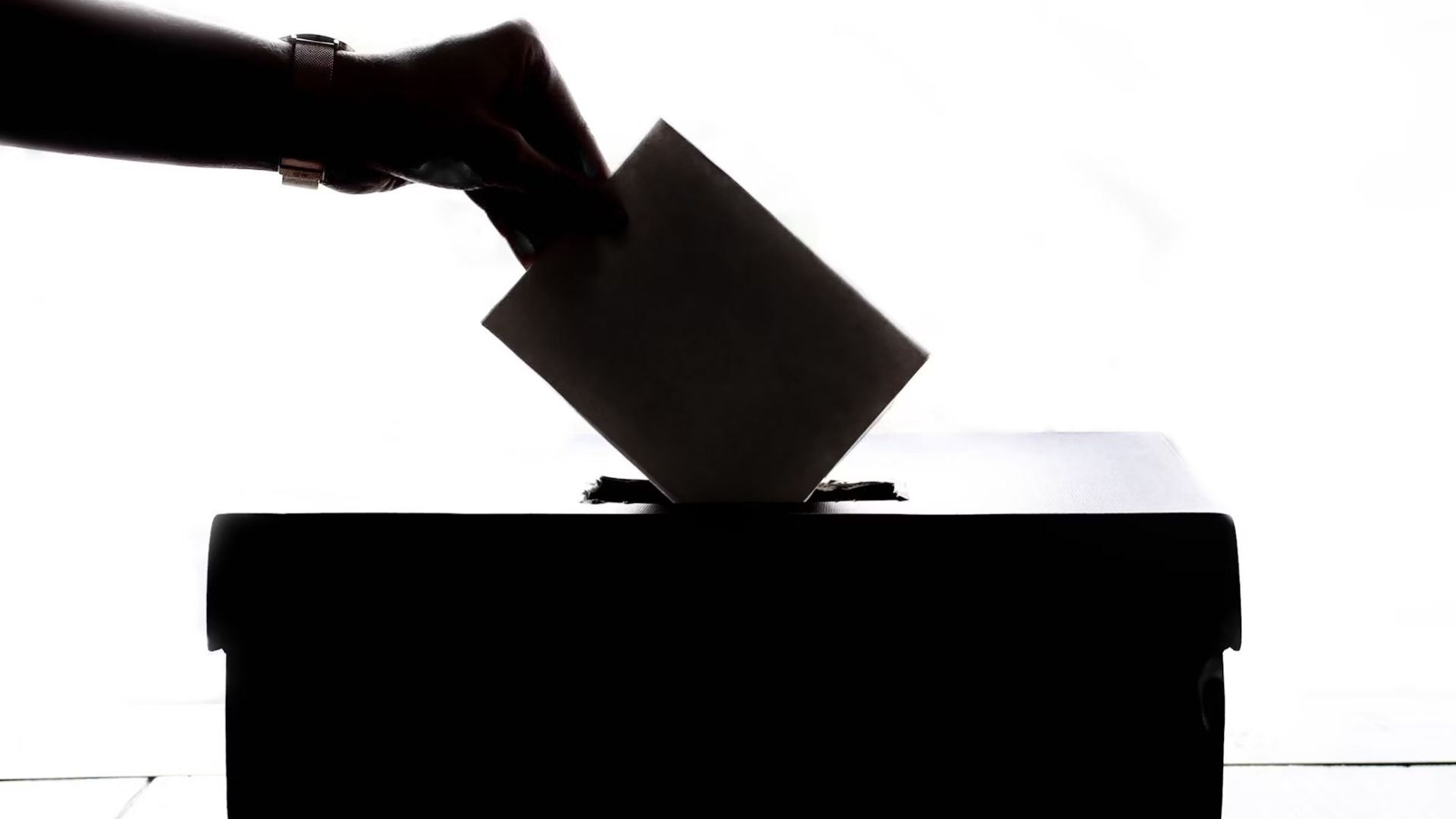
However, while millions of Americans may be voting based on a candidate’s religious affiliation, there are still millions of others who are vehemently against these leaders using their Christianity to garner votes.
They argue that Trump and other government officials promoting Christian nationalism isn’t only unconstitutional and literally illegal, but it’s also against their own personal beliefs.
Many Christians Believe That the Nation and Religion Should Remain Separate
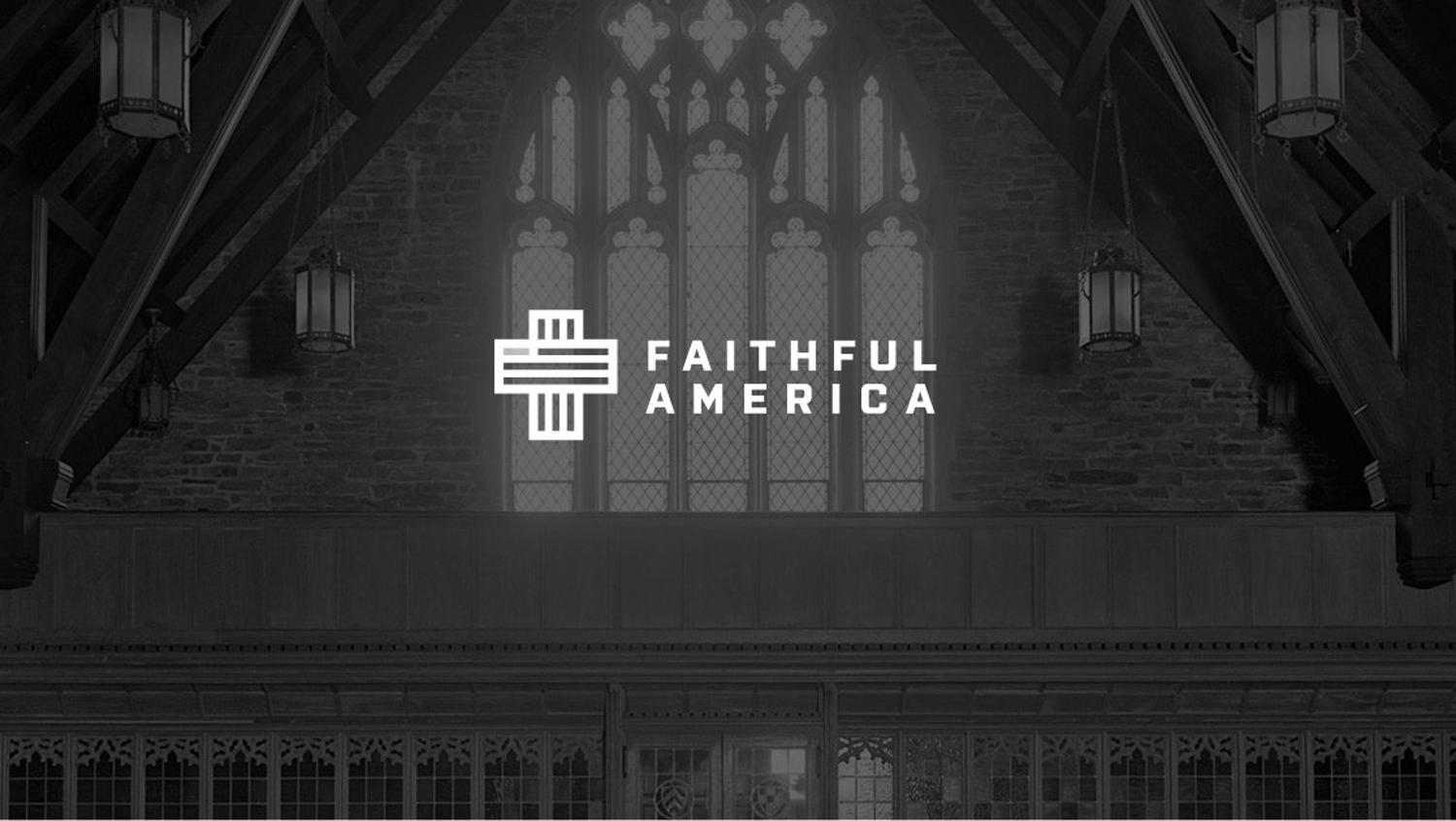
In fact, there are even many Christians arguing against Christian nationalism. One group in particular, Faithful America, claims that government leaders are using so-called Christian beliefs to prosecute others.
The organization believes that Jesus, the one true son of God, spread the message of love for all people, no matter who they are, what they believe in, or who they love. However, that is not the message these “Christian” leaders are spreading. Therefore, Faithful America wants the US to continue its practice of the separation of church and state.
What About Separation of Church and State?
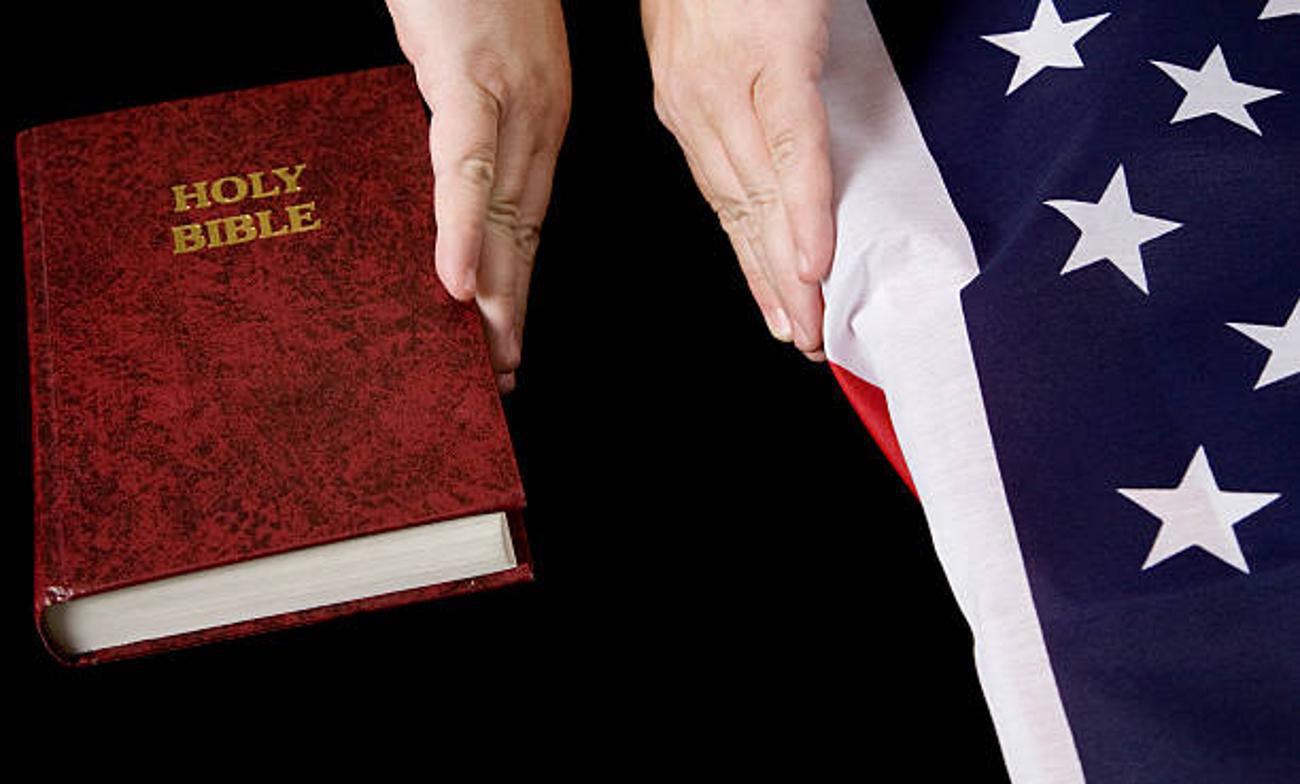
The phrase “separation of church and state” has been used over and over in US rhetoric over the past two centuries. Many will be surprised to know that this statement is not written anywhere in the US Constitution, but instead, was written by Thomas Jefferson in a letter to a local Christian organization.
Either way, the phrase stuck and has long been considered a crucial part of the American government system.
The Church and State Are Not Separated
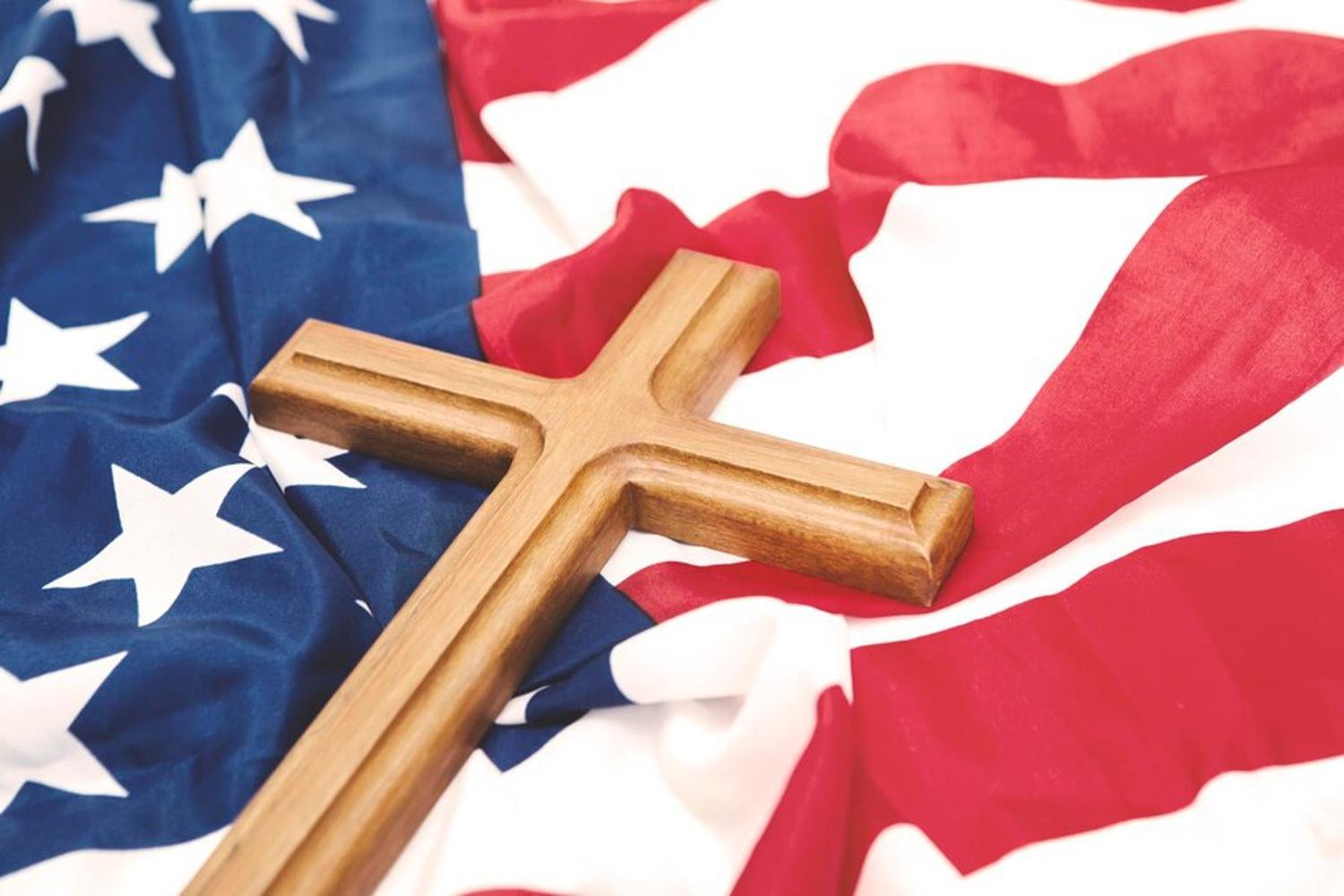
The idea was simple: The church (i.e. Christianity) should always remain separate from the state (government.) But it has become increasingly clear that many leaders and Americans are no longer following the Founding Father’s advice.
Christianity and the United States government are more intertwined than ever, and if Trump wins in November, the separation of church and state may become a distant memory.
Will Captain Little Win the Lawsuit Against California and the Pride Flag?
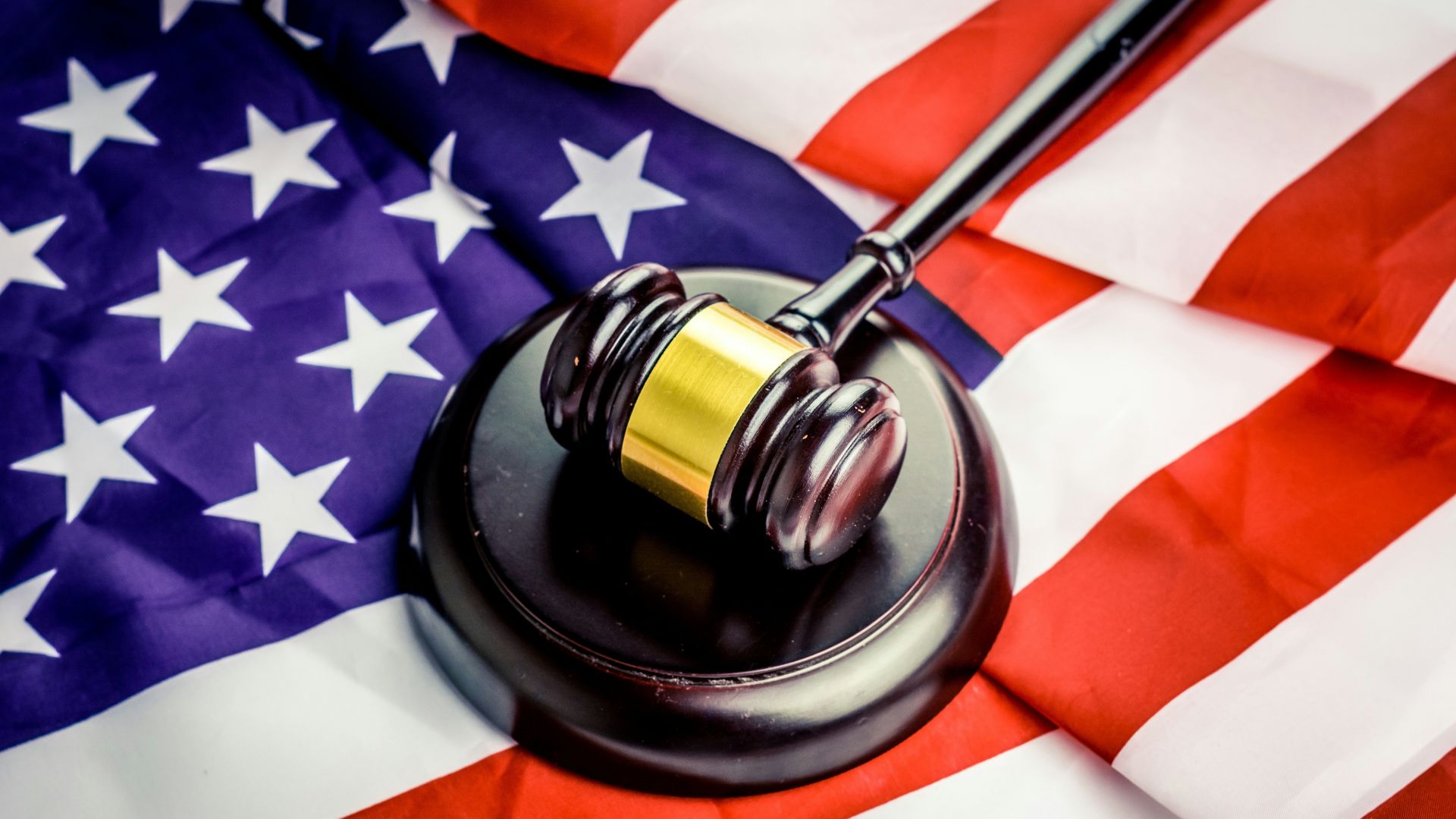
Captain Little’s lawsuit against California and his Constitutional right to refuse to fly the Pride flag is ongoing, and no one yet knows what the outcome will be.
However, whatever does happen in this case will likely influence the rights of Americans for years to come. And no matter which way the judge rules, there will certainly be outcries from Americans all around the country.








































